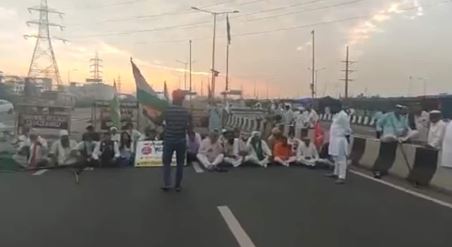
Even blockade of railways for a while were forgiven by the people as the exercise of political rights by the actors involved apart from the conventional methods of organizing rallies, distribution of pamphlets, taking delegation/s to the minister/prime minister or the authority concerned for the mitigation of the grievance or opposition of the decision.
But a clear line was drawn by the protesters between pressure and coercion. Both the government and the protesters/dissenters were open to each other without any adamancy.
The government was considered as a legitimate authority to pass legislation/ order in public interest in a representative democracy with the right to question reserved for the public, the political opposition as well as the pressure /interest groups ultimately giving way to the discretion of the government.
However, recent violent demonstrations and blockade of the highways and roadways in some parts of the country over the passage of Citizenship (Amendment) Act and later the three farm laws by the Parliament including attacks on the law and order forces like the one on 26th January 2021 and occupying the Red Fort by the Kulaks and anti-socials for months and years have brought to the fore several questions. Some of them require an immediate attention of the people of India. For example –
-
When can an action of the above types- violent or peaceful taking charge of the public lands/property be taken as anti-national?
-
What is the relationship between individual/sectional rights/interest and social good/public interest?
-
What are the boundaries of the right to free speech and expression? What if the pressure/ interest groups/political parties develop vested interest in opposing and delegitimizing the duly elected government and try to create and sustain distrust between the state and the public thereby attempting to compromise the political stability and peace and social order? What if the protesters, in the process, damage the credibility, public confidence in and authority of the constitutional institutions like the elections commission, Parliament and her presiding officers, the judiciary including the High Courts and the Supreme Court?
-
Is it not the right time to define the relationship clearly between political rights and duties of the citizen toward the nation and the society?
-
What if the opponents of a decision try to create confusion, suspicion and fears in the public minds and create communal divide like the one in the case of citizenship (amendment) Act and the three farm laws? Is it not an appropriate time to ban the washing away of the entire session/s of the parliament through disruption and the propagandist politics outside the legislature when it is very much in session?
These questions acquire significance for not only making our democracy and the democratic system more robust but also for making it more responsible, responsive and disciplined in addition to effectively addressing the issues of national unity, integrity and development besides restoring a political culture that would make constructive criticism possible and push aside the negative approach to opposition of the government. The two examples of agitation cited above are enough to bring out the anti national underpinnings and consequences of the long drawn occupation of public roads and railways.
What can be more anti national than causing a loss of thousands of crores of rupees by freeing the toll plazas across the states, torturing the public passing through the points of dharnas in terms of mental tension, petrol diesel consumption and loss of time in addition to depriving the small time vendors and restaurant owners and workers of their livelihoods. It was all really traumatic. Further, it really hurts the nation and a poor society if crores of rupees are wasted by our political representatives in making parliament non-functional/non productive throughout the session in support of opposing a particular decision of the government; and all in the name of defending the constitution and the democracy, unfortunately.
It has become a rule, rather than an exception, to not debate an issue in the legislature in order to find a solution to the disagreement between the government and the opposition, a constitutional forum for the purpose. Again, it is time to reiterate a very important principle of decision making in a parliamentary system of government: “the minority must have its say while the majority have its way”.
It is obligatory for every citizen of the country to obey the law passed by the parliament, until the law is declared by the judiciary as null and void. Not doing so would tantamount to challenging the sovereignty of the state which can neither be termed nationalism nor constitutionalism by any extent of imagination.
It may be notable to assert that if any agitation causes harm to the economy or social and cultural interest of the nation, it cannot escape the charge of being an anti-national activity. The government shall be well within its constitutional rights to put an end to such a protest with all legitimate means.
Moreover, no democratic country, though cannot and should not undermine the fundamental right to criticize the government and oppose, vehemently too, can permit freedom of speech and expression to be translated as license to say or do anything because such a situation will lead to the practice of anarchy in theory and practice. What it all means is that political parties must resort to healthy competition for power instead of staging a coup.
(The author is former fellow, IIAS, Shimla)

